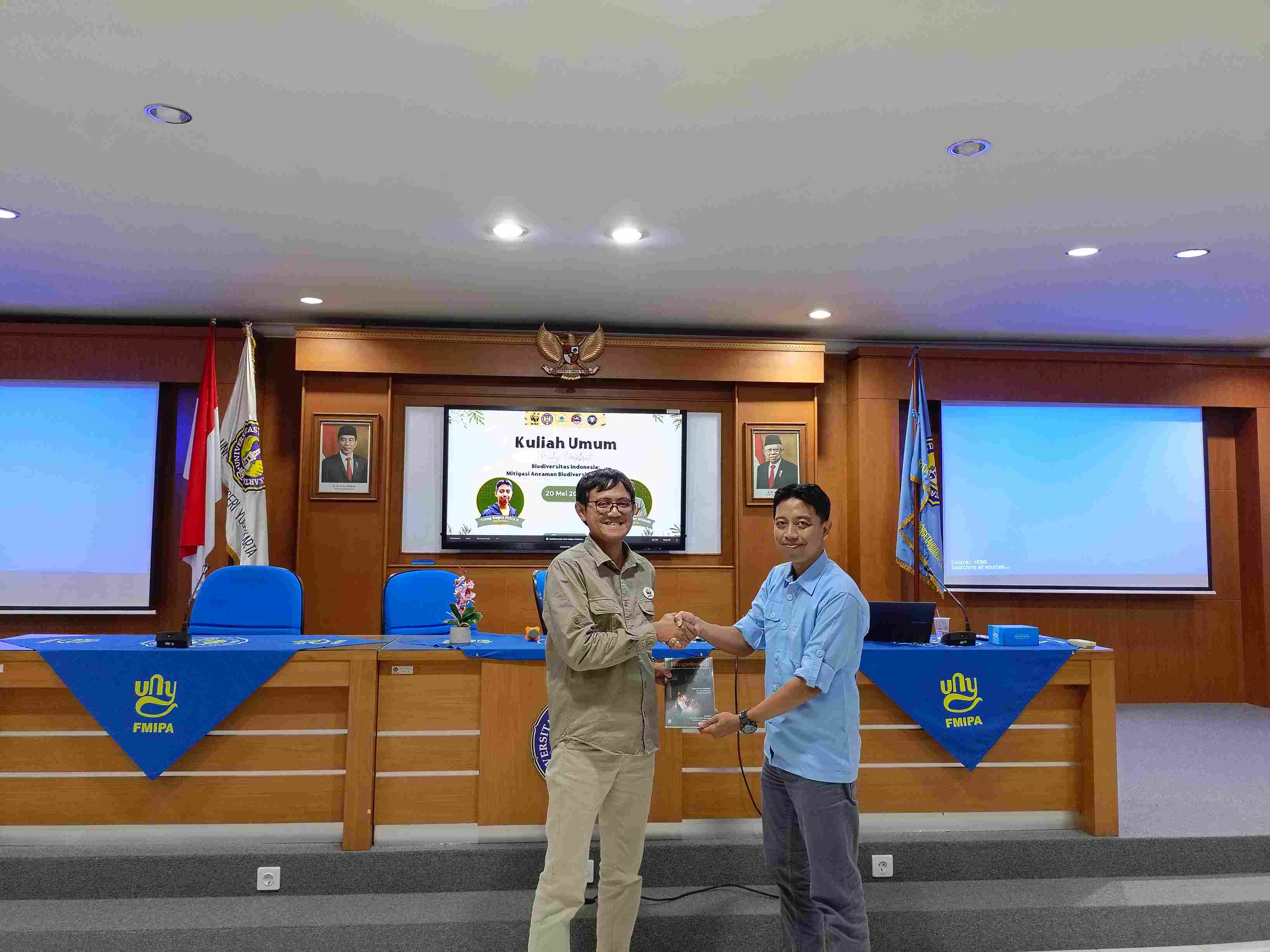 Bahasa Indonesia
Bahasa Indonesia English
English
You are here
Public Lecture on Vertebrate Biology with Febri Anggriawan Widodo, S.Hut., M.Sc.: Practitioner from the World Wide Fund for Nature (WWF) Indonesia

Public lectures are a form of activity where students get direct insights from practitioners in certain fields outside of regular lecture hours. The existence of this public lecture is expected to bring students more connected to campus life and be able to see the picture outside the campus so that they can expand their knowledge and experience, as well as increase their enthusiasm for studying biology. This was revealed by the Head of the Department of Biology Education, Faculty of Mathematics and Natural Sciences, Yogyakarta State University, Dr. Anna Rakhmawati, M.Si. when opening the Public Lecture on Vertebrate Biology held by the Department of Biology Education, FMIPA UNY with the theme "Indonesia Biodiversity: Mitigating the Threat of Indonesia Biodiversity" on Monday (20/05/24) offline in Meeting Room 2 of FMIPA UNY.
The activity, which was attended by 105 students of the Department of Biology Education, FMIPA UNY, presented a resource person from the Tiger Project Executant and Conservation Science from WWF Indonesia, namely Febri Anggriawan Widodo, S.Hut., M.Sc. In the presentation delivered by Mr. Febri, it was highlighted about the importance of mitigating threats to biodiversity in Indonesia. Indonesia, with its rich biodiversity, faces a range of direct threats such as habitat loss, fragmentation, and poaching, as well as indirect threats arising from human-environmental interactions. He also emphasized that biodiversity conservation in Indonesia requires an inclusive approach, involving various parties ranging from the government, and companies, to local communities, as well as the importance of integration between conservation strategies and sustainable development.
In a global context, Mr. Febri explained that conservation efforts cannot be separated from connectivity with international initiatives. He highlighted the importance of adopting global conservation practices to strengthen species protection in Indonesia. In the preparation of conservation strategies and action plans, he suggested the need for a multidisciplinary and long-term approach, taking into account various ecological, social, and economic factors. Key challenges include resource constraints, regulations, and human-animal conflicts, which require solutions based on multistakeholder cooperation and ongoing monitoring and evaluation.
Through this public lecture, it is hoped that participants can understand the urgency and complexity of biodiversity conservation in Indonesia and gain in-depth insights into the strategies needed to protect our biodiversity. The knowledge gained is expected to inspire and encourage participants to actively contribute to environmental conservation efforts, both through research, policy, and concrete actions in the field, in order to ensure the sustainability of Indonesia's natural resources for future generations. In addition, it is hoped that this public lecture can also establish cooperation in the field of student final project research (thesis) between students of the Biology Education Study Program and the Biology Study Program with WWF.

By. N A Z
Sistem Informasi
Kontak Kami
Program Studi Pendidikan Biologi
Kantor Jurusan Pendidikan Biologi
Gedung Dekanat FMIPA lt III
FMIPA Universitas Negeri Yogyakarta
Kampus Karangmalang Yogyakarta 55281
email : pend_biologi@uny.ac.id
Copyright © 2026,

